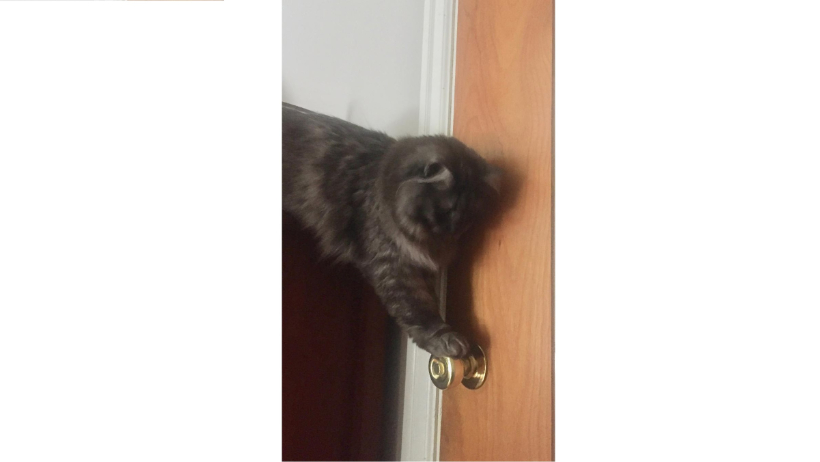Oasis Songs: Musings from Rav D
Friday, February 15, 2019 / 10 Adar Rishon 5779
Summary: Rabbi Kosak reflects on a couple of mitzvot that teach the value of derekh eretz, or proper behavior.

Growing up, we always had to feed our dog before we could sit down to dinner. I thought it was just our family practice. One day when the family hound had turned five or so, and I was particularly hungry, I tried to eat something first. My mom stopped me and said that in Judaism, we are required to feed our animals before ourselves.
The source for this commandment comes from a verse in Deuteronomy (11:15): “And I will give grass in your field for your livestock and you will eat and be sated.”
The Talmud noted that in the verse, the animals are given their feed before we eat. That was how I grew up, and to this day, I suspect my cat is in the know. Whenever I am cooking, she inevitably comes by the stove and meows. In this way she reminds me that it’s fine for me to cook, but that she better get her bowl before the family sits down to eat.
The Judaism I grew up with in my home was present in many small actions like this. One of them is outlined in this week’s Torah portion, Parashat Tetzaveh. Our sedra, or weekly reading, goes into great detail about the special vestments worn by the priests in their service of God.
One of the most unique articles of clothing which adorned the High Priest was the me’il, a four cornered blue robe that was worn like a sandwich board. In addition to its unique color and dimensions, there were seventy two bells affixed to this garment.
According to the rabbis, these bells were necessary to teach us that when we enter a room, we need to announce our arrival and not simply walk in.
Of course, in this instance it was the High Priest giving God notice that he was entering the Holy of Holies, the most sacred space of the Tabernacle. This begs the question “God is all-knowing. Does the Holy One of Blessing really need the warning that the High Priest is coming into this holy space?”
The answer that our sages provide is most instructive. While God doesn’t need an “advanced warning system,” we human beings most certainly do. We shouldn’t take people by surprise because they may not be up for visitors, or they may need their privacy. That is why we should always knock on a door before we enter. But just as importantly, we should wait until we are told that we may enter.
As you may know, our tradition also has a deep love of medicine. It comes from another Biblical statement that “you must certainly heal.” One of our greatest scholars, Maimonides, was also an exceptional doctor. Because of our deep respect for doctors and a long tradition of our young men and women choosing this profession, I have always wondered if one of the practices of modern medicine has a Jewish source. It seems that most doctors knock on a patient’s door before entering. Unfortunately, few ever wait to be told to enter, so they only get credit for half of the mitzvah.
Still, it is good practice. If I have a meeting with a student and step out to photocopy something for them, I make a habit of knocking on my own office door. Nobody likes to be startled. Additionally, embarrassing someone in public is likened to murder.
We are fortunate. Our Sages could have developed a brittle, fundamentalist approach to reading Scripture. Instead, by paying attention to the smallest detail of Torah, they learned essential details of human interaction. By doing so, they remind us that even something as seemingly unimportant as the special clothing worn by the Kohen Gadol teach us to knock before we enter.
Shabbat shalom
Rav D
Shabbat Table Talk
- What unique family customs did you have growing up? Did any of them have a Jewish source or some other ethical teaching connected to them?
- Have you ever been embarrassed when you startled someone by walking in on them?
- What lessons do your cats, dogs or other pets teach you?
If you’d like to continue this discussion, follow this link to CNS’s Facebook page to share your own perspectives on the topics raised in this week’s Oasis Songs. Comments will be moderated as necessary.



